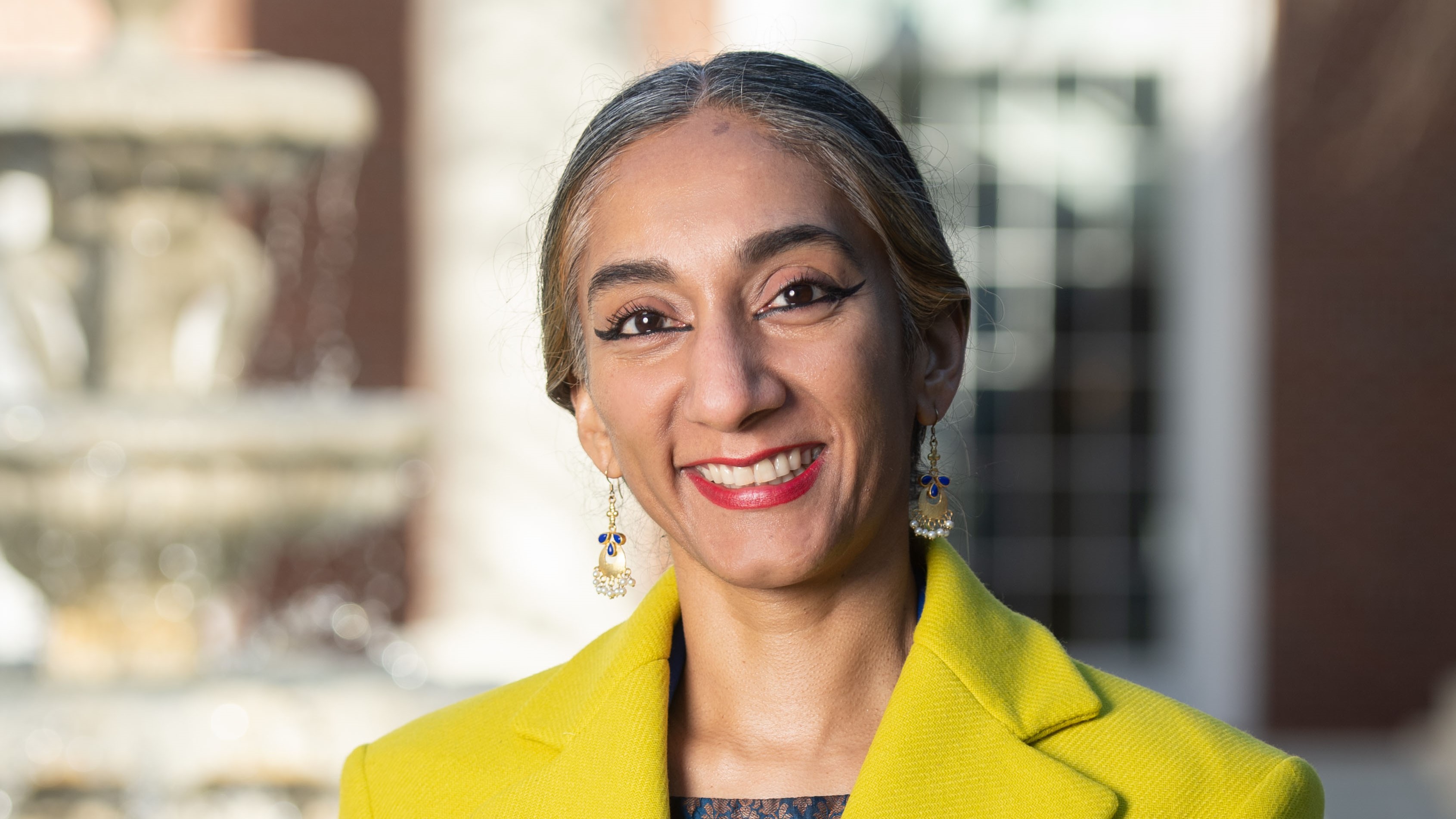home_news
Alumna Dr. Tripthi Pillai brings pedagogy to the forefront of the classroom (9/1/2023)

Tripthi Pillai obtained her doctorate degree in English from Loyola in 2010 and dove headfirst into a professorship role. Recently promoted from Associate Professor to Professor at Coastal Carolina University and a year into an appointment as Assistant Dean of its College of Humanities and Fine Arts, Dr. Pillai has transformed Coastal’s English department’s pedagogical landscape and developed new courses and teaching practices for the curriculum.
Following Coastal’s teacher-scholar model, Dr. Pillai welcomed the approach that the university has to enact change and difference in pedagogy during her thirteen-year tenure. “It was a pleasant surprise that ideas were not only absorbed but acted on,” she says. “And that's part of the reason I've stayed on, because I've been able to embrace new roles and have been supported in them.”
The innovations she has brought as a professor and Assistant Dean have included bringing pedagogy to the forefront and understanding it as an “inextricable component of research that fosters future generations of academic and scholarly excellence.”
“I think pedagogy encompasses both the basic and the nuanced identities of academic life within the institution. So the student, the teacher, the administrator, and the support staff … all of us coalesce around the idea that excellent and dynamic teaching is necessary for the institution to thrive,” she says. The attraction for students is a sort of sustained intellectual intimacy in their learning environment.”
Coastal’s small class sizes permit her to connect with her students and engage with their work. As the department’s resident Shakespeare expert, she collaborates with her students in bringing a more nuanced approach to the writer’s work.
“I am the Shakespearean in my department. ´Topics in Shakespeare is a popular course across many majors. Students often take the course expecting to have what I call a legacy-style engagement with the bard. Many expect their assumptions about Shakespeare to be reinforced in their studies. Instead, I invite students to consider how they might engage sustainably with Shakespeare and find relevance and provocation in studying Shakespeare while acknowledging the material and affective damage done by ´legacy´ texts,” she says. This approach is the focus of one of her book-length projects.
By taking a hands-on approach with each student, Dr. Pillai goes beyond her role as an instructor and becomes a collaborator in each of her student’s projects. “I want my students to meet with me so that we can co-create their trajectory through each assignment,” she says. “But that doesn't mean I am writing the project for them or designing it for them.”
She praises her time as a graduate student at Loyola, where she learned how to teach and consequently built her pedagogical identity. By putting her in a classroom, the program taught her how to lead classes and foster dialog among students. She taught introductory Shakespeare courses as well as more advanced courses like “Plays of Shakespeare,” and served on an honors thesis committee.
“I had great advantage because I could go into a classroom and not be stunned by the experience of having students look to me to design and lead class conversations. Nor did I have the discomfort that so many colleagues across the world feel because they have not really had that palpable intimate relationship of being in a space and sharing that pedagogical moment with students,” she says.
Pillai also commends the diversity in approaches to teaching that faculty in Loyola’s English Department have, and how much that variety in teaching influenced her own educational journey as a student.
“There were some phenomenal lecturers and then there were some phenomenal discussion leaders and then there were some phenomenal tutor-style professors,” she says. “That breadth and diversity of teaching ability really has impacted me.”
She says she continues to recall the practices and skills she learned from the faculty at Loyola every day. And she fondly remembers her intimate cohort and the small graduate class sizes at Loyola, which allowed her to be part of a community during her time as a graduate student.


